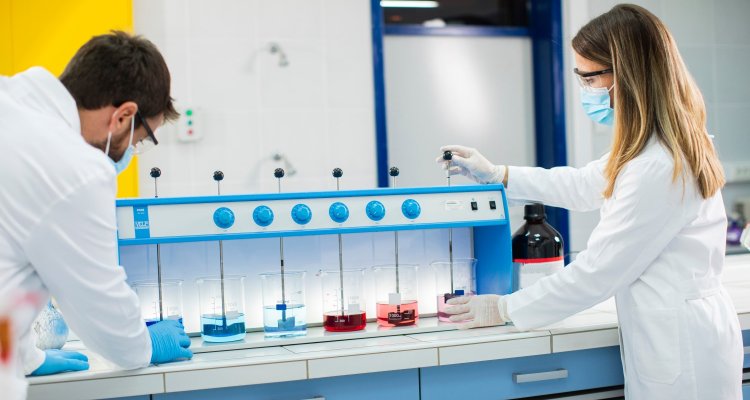
Project
Call for Partners | Chemically free biobased cationic flocculants from renewable sources
Wageningen Food and Biobased products (BBP) is searching for partnerships to develop novel biobased flocculants. Cationic polymers play an important role in waste water treatment. Currently mainly synthetic or petro-chemical derived polymers are used for this purpose. A disadvantage of these polymers is their poor biodegradability and therefore easily accumulate in nature. With exception of chitin, most biopolymers have a neutral or anionic nature. Hence it is needed to search for alternative routes in modification to introduce positive charge into neutral biopolymers such as starch. The development of these novel modification paths require the elimination of toxic or petro-chemical derived chemical.
Currently cationic synthetic polymers and chemically modified cationic starches are used as flocculant in water treatment, such as polyethelyneimine, polyvinylpyrollidone, polyvinylamine etc. This will create an environmental problem in the future. Hence there is an urge to replace them via natural polymers, such as starch.
Alternative processes for cationization of starch
Traditional cationic starches have been already used by industry to replace the synthetic cationic polymers. Nevertheless, a disadvantage of these modified starches is that these are chemically substituted with 3-chloro-2-hydroxypropyltrimethyl ammonium chloride or glycidyl trimethylammonium chloride. As these chemicals are under suspect (cancerogenic) it has become a topic of interest to find alternative processes for cationization of starch.
The approach in this project is to use natural cationic components/molecules from agricultural side streams, e.g., amino acids. These amino acids will be transformed into a reagent for starch modification. This research will focus on the determination of the reaction conditions that enable the modification. This will also include functional performance and benchmarking with the synthetic flocculants.
The proposed activities include:
- Side stream polishing and isolation of amino acids
- Conversion of the solid amino acid into a liquid through a melting process
- Applying the amino acid liquid as a reactant for starch modification
- Structural identification of the green modified starch
- Application testing
Partners
We welcome partners handling WWTP effluent (water boards, provinces) and industrial partners managing residual streams suitable for reuse and industrial suppliers of natural polymers. Additionally, we seek collaboration with technology providers specializing in water treatment, analysis, or monitoring, aiming to optimize the implementation of their products.